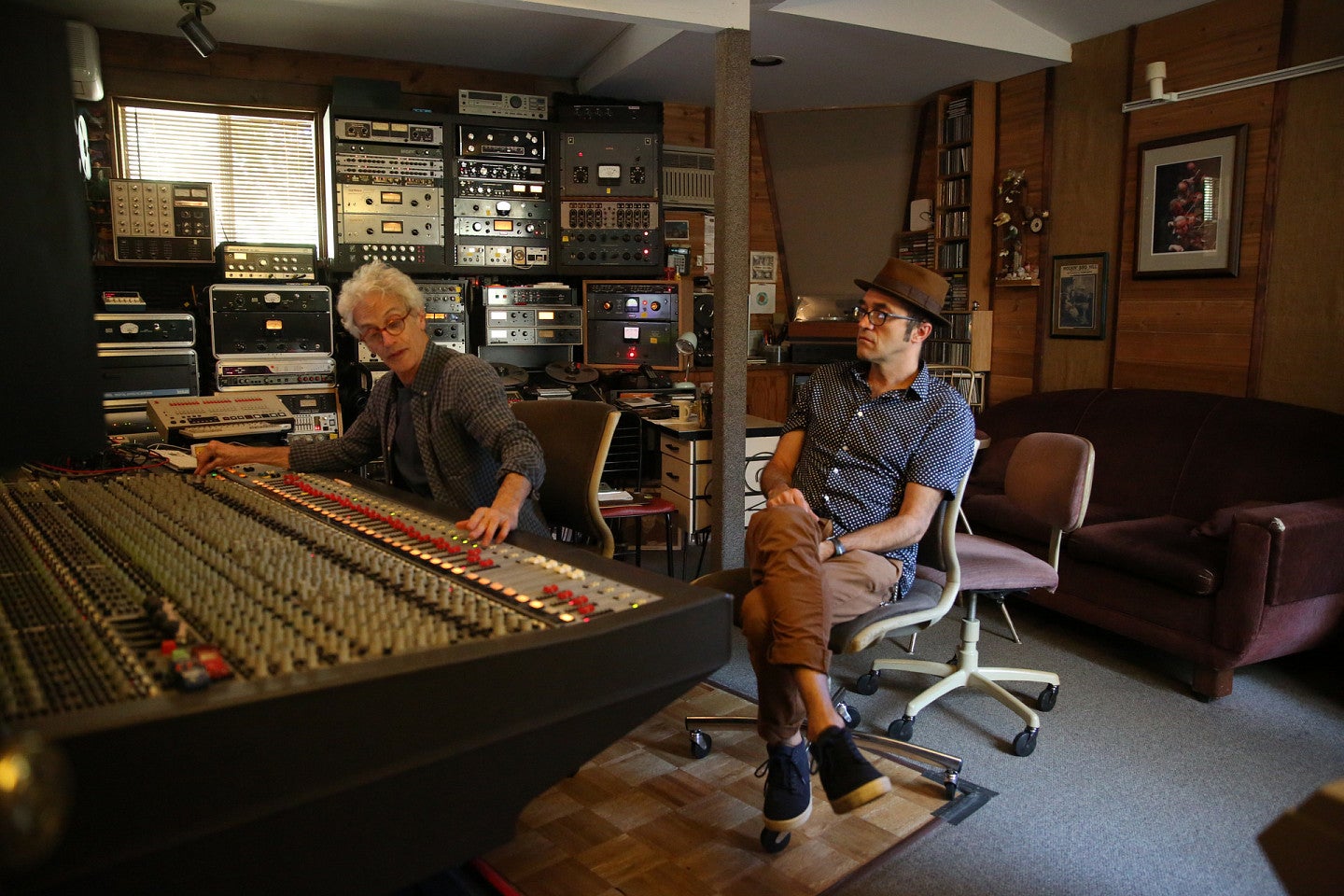
Steve Perry’s career a blend of swing, ska, punk…and evolutionary developmental biology
Steve Perry, BS ’04 is a member of an extremely exclusive club.
There aren’t too many people who can claim they have written a multi-platinum album and co-authored a scientific paper, but that is precisely his claim to fame. His band, The Daddies, was the face of the 1990s’ swing revival, touring the world while their song “Zoot Suit Riot” shot up the Billboard charts. Years later, Perry returned to the UO and earned a degree in molecular biology before contributing to the groundbreaking research conducted in Bill Cresko’s lab in Pacific Hall.
A native of Apalachin, New York, Perry originally came to the University of Oregon in the early 1980s, not with dreams of following in the footsteps of Frank Sinatra, but rather the rapid strides of Steve Prefontaine.
“I was on a run with my cross country coach and we were at the top of a mountain coming down, and talking about where I was going to go to school,” Perry said. “He said, ‘Have you considered the University of Oregon?’"
Perry’s father encouraged him to head out of state to study, so Perry enrolled at the UO and took a train—yes, a train—3,000 miles to Eugene to become a Duck.
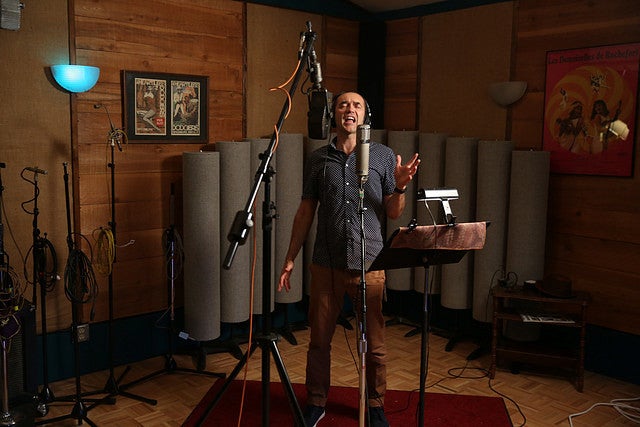
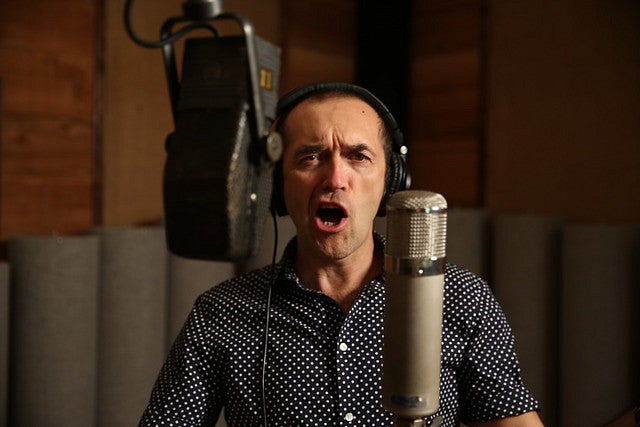
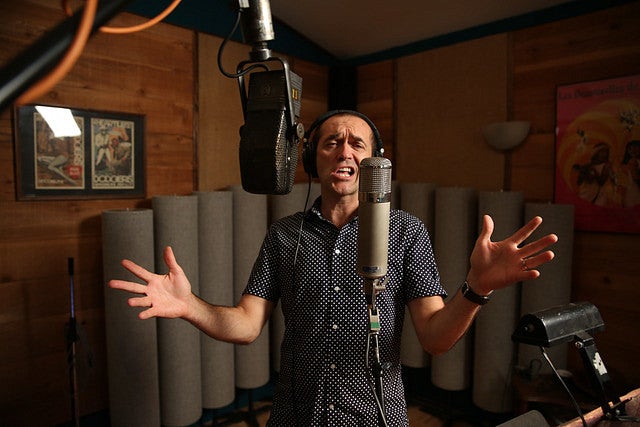
“The moment I got on the train, my life began,” he said. “Before that I was stuck in this grey world, and then all of a sudden everything was open.”
“I took genetics, and Frank Stahl taught me,” he said. “They didn’t even have a book. I remember him saying, ‘We don’t have a book because things are happening so fast.’ I found out later that the people in the department were damn near Nobel Prize-winning people. They wrote the books. That’s George Streisinger; Aaron Novick—he worked on the Manhattan Project.”
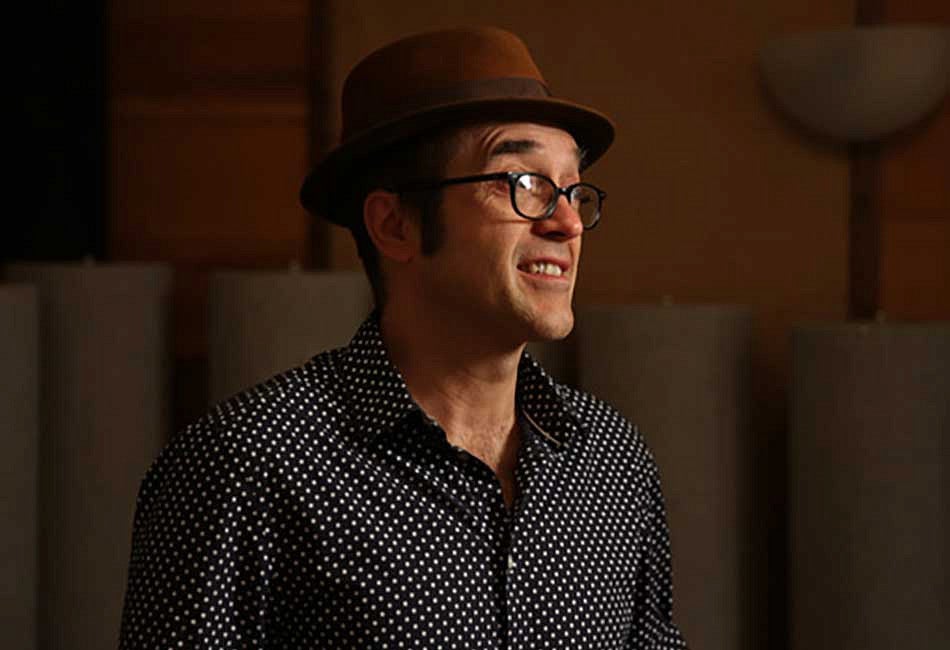
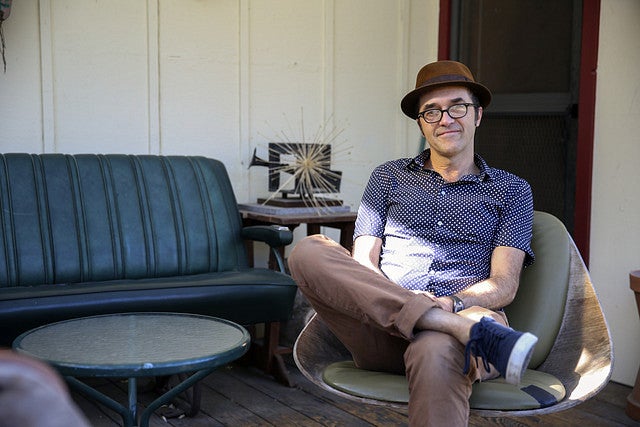
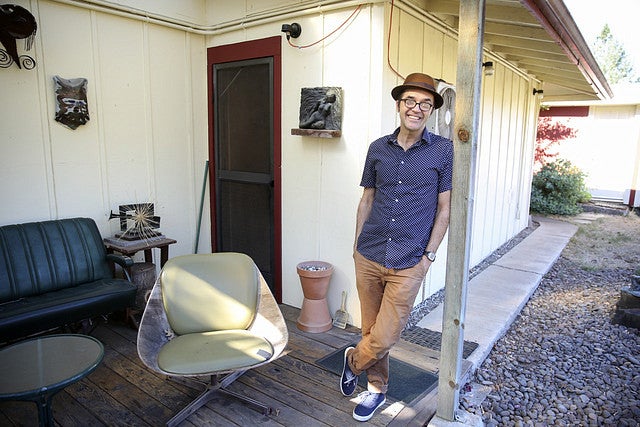

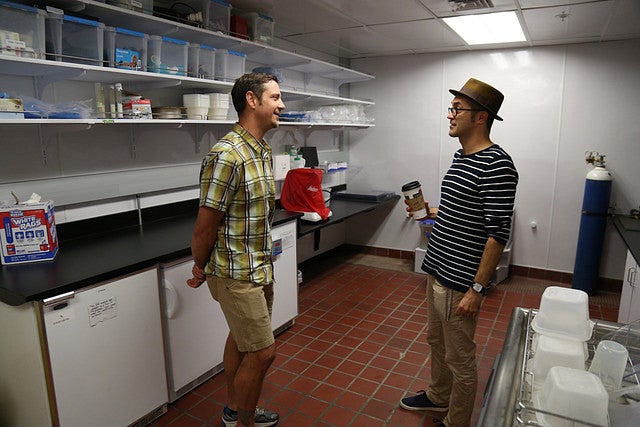
Perry was unable to make the UO track team; but, as the saying goes, when one door closes another opens, and when the gates to Hayward Field closed, the stage door blew wide open. Perry chose bands over chemical bonds and race bibs and dropped out of school, forming The Daddies with classmates.
The seven-piece band played its first show at the W.O.W. Hall on March 31, 1989. Eight years and countless gigs up and down the West Coast later, they put together a compilation album of previously recorded swing songs, including a new song called “Zoot Suit Riot.” The album went double platinum, selling more than two million copies; the single went to No. 15 on Billboard’s Modern Rock charts and the video was nominated for an MTV Video Music Award.
By the time their next album was released, the mainstream swing revival was in its last days. The Daddies were released by their label, and exhausted from a decade of constant touring, went on hiatus.
That left Perry with free time he hadn’t had when playing 300 shows a year—free time he dedicated to pursuing his other passion: science.
“I thought, my degree is something I’ve left undone,” he said. “One day I woke up and walked down to Oregon Hall, and said, ‘This is stupid, but is it possible for me to reenroll and get a biology degree?’”
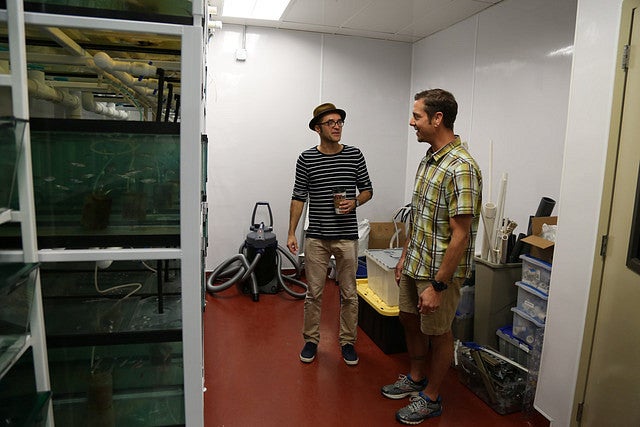
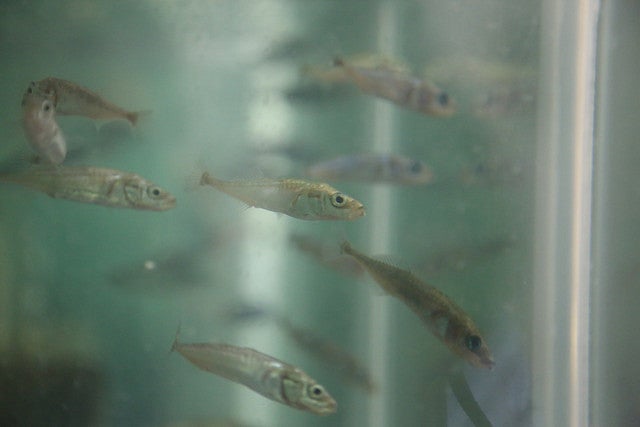
Reenroll he did, and Perry graduated in 2004 with a molecular biology degree before going to work in the Cresko Lab.
Launched in 2005 by William Cresko, associate vice president for research, the Cresko Lab aims to understand how evolutionary form and function evolve at the molecular, cellular, developmental, and genetic level. “The basic thing we’d like to understand is, ‘How does evolution occur?’” Cresko said.
Perry spent the better part of a year in the Cresko Lab, analyzing slides beneath a microscope and entering information into a database. He, Cresko, and fellow researcher Mark Currey, BS ’04, MS ’14 analyzed embryo development in stickleback, a fish known for undergoing rapid evolutionary changes whenever populations become isolated from each other in different types of water. The results of the research conducted in 2005 are set to be published in 2016.
“Every once in a while I jokingly mention a graduate degree to him, but he’s got other things going on in the world,” said Cresko, who described his former researcher as a good student and a good, conscientious worker in the lab.
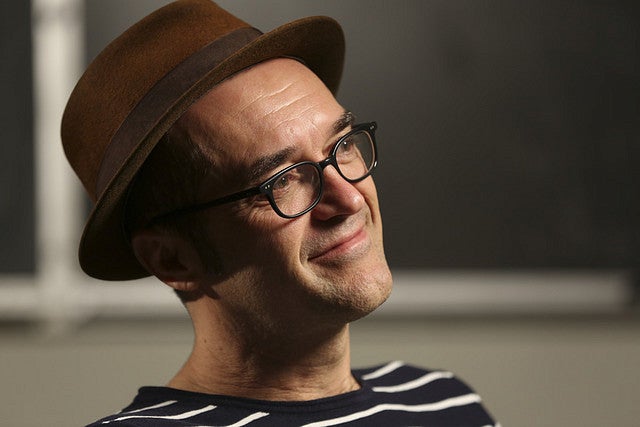
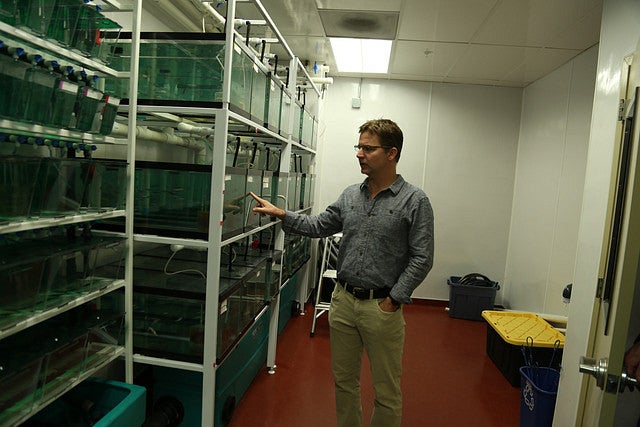
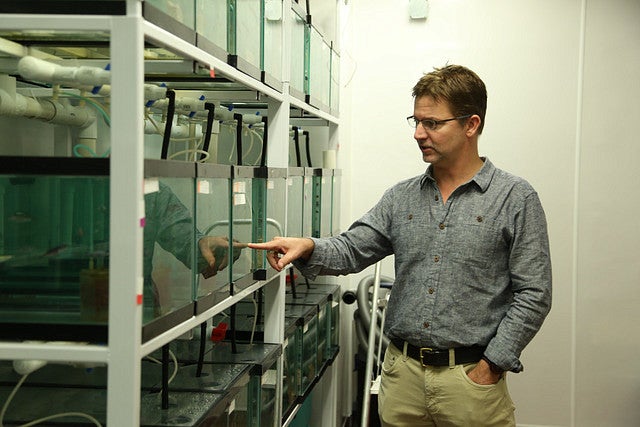
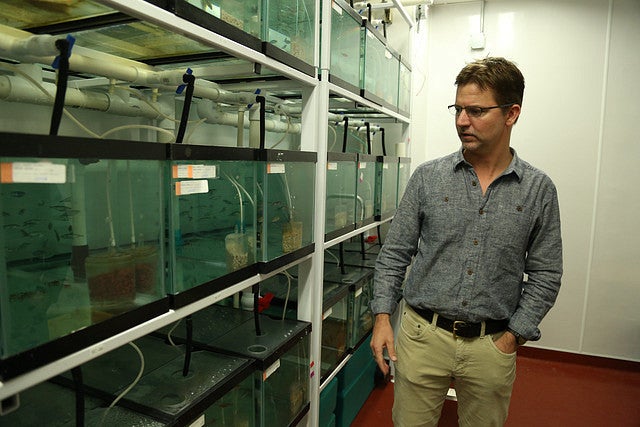
Those other things are, once again, The Daddies, who have reformed and are touring and releasing new music. That isn’t to say Perry has left the Cresko Lab behind, though—he is using the connections he made in the music industry to help Cresko fund, and eventually fill, his cluster hire.
The UO’s cluster hiring initiative is a plan to bring some of the world’s most accomplished experts to the university. The ten cluster initiatives will see researchers collaborate to find solutions to problems affecting not just Oregon, but the entire world. Cresko’s Integrated Analysis of Biological Networks cluster will position the university to answer fundamental questions about the nature of living systems, which could lead to novel solutions for medical problems.
The cluster is focused on the intersection of biology and mathematics, applying cutting edge mathematical processes to understand how and why biological interactions occur and how they function in networks. Think of the human genome as a car: we know what the parts are; now we want to know how they work together and how to repair them when the car breaks down.
“The stuff they’re doing is right on the forefront of what needs to get done,” said Perry, who uses Twitter to keep up-to-date with the latest scientific developments.
“Everybody has a cause, and science is my interest outside of music. That’s what I bang the drum for.... I didn’t stay with biology, so I’m not a biologist, I’m just a fan. But whatever they need me to do, I’ll do it. If they need me to stack boxes or run some gels, I’m there. What I really want is them to get this cluster hire through. When that happens I’ll pop some champagne, because what they’re doing is great and they’re great guys.”

